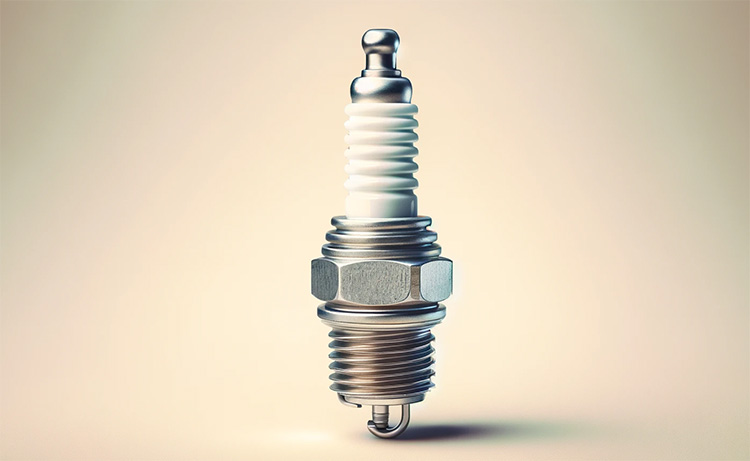Luke's Car Tips & Auto Maintenance Advice
Luke's posts regular blogs to offer you great information and advice about your car maintenance. Check back often for new posts. Search for a specific topic!
 Luke Shaff
Luke Shaff
In the symphony of components that make a car's engine run, the spark plug might be considered the conductor's baton. It's a small but mighty part that plays a crucial role in powering your vehicle. Let's get to know these unsung heroes a little better.
What Are Spark Plugs?
Spark plugs are precisely engineered components that provide the spark that ignites the air-fuel mixture in the combustion chamber of your engine. This ignition is what powers your car—without it, you wouldn't go anywhere!
The Anatomy of a Spark Plug
A spark plug has several parts: the terminal, insulator, ribs, insulator tip, seals, metal case, and the electrode where the spark actually jumps across. Each of these components is designed to withstand intense heat and pressure within your engine while still performing its critical job.
How Do Spark Plugs Work?
To understand spark plugs, we need a quick physics detour. Remember the saying 'opposites attract'? Well, electricity follows this rule too. A spark plug works by creating a high voltage difference between its two electrodes—an outer one and a central one. When the voltage gets high enough, electricity leaps across the gap between these electrodes, creating a spark.
This spark ignites the mixture of fuel and air in the combustion chamber, causing a mini explosion. This explosion pushes the piston in the cylinder, which in turn makes the engine's crankshaft turn. This process happens in milliseconds and many times per second, generating the power that eventually turns the wheels of your car.
The Life of a Spark Plug
Spark plugs can last a long time, but not forever. They operate in a tough environment and eventually wear out. The gap between the electrodes can change, the electrodes themselves can wear down, or the insulator can crack. A worn spark plug might not create an effective spark, which can lead to engine misfires, reduced fuel efficiency, and even engine damage.
Symptoms of a Dying Spark Plug
How can you tell if your spark plugs are on their last leg? Here are a few symptoms:
Changing spark plugs is a task that can range from easy to challenging, depending on the car's design. Some people do it themselves; others leave it to the professionals.
The Right Spark for Your Engine
Not all spark plugs are created equal. Different engines require different spark plugs. The right type for your car will depend on the manufacturer's specifications, which take into account the precise conditions inside your engine. Using the wrong type of spark plug can lead to poor performance and engine damage.
In Conclusion
Spark plugs may be small, but their role in your car's engine is as critical as that of any conductor leading a well-tuned orchestra. They ensure that the fuel's energy is harnessed efficiently, enabling you to hit the road smoothly. Keeping them in good shape is not just about maintaining performance; it's about preserving the health of your engine.
So, the next time you turn your key and your engine roars to life, spare a thought for the humble spark plug. It's a little piece of engineering magic that deserves our appreciation!